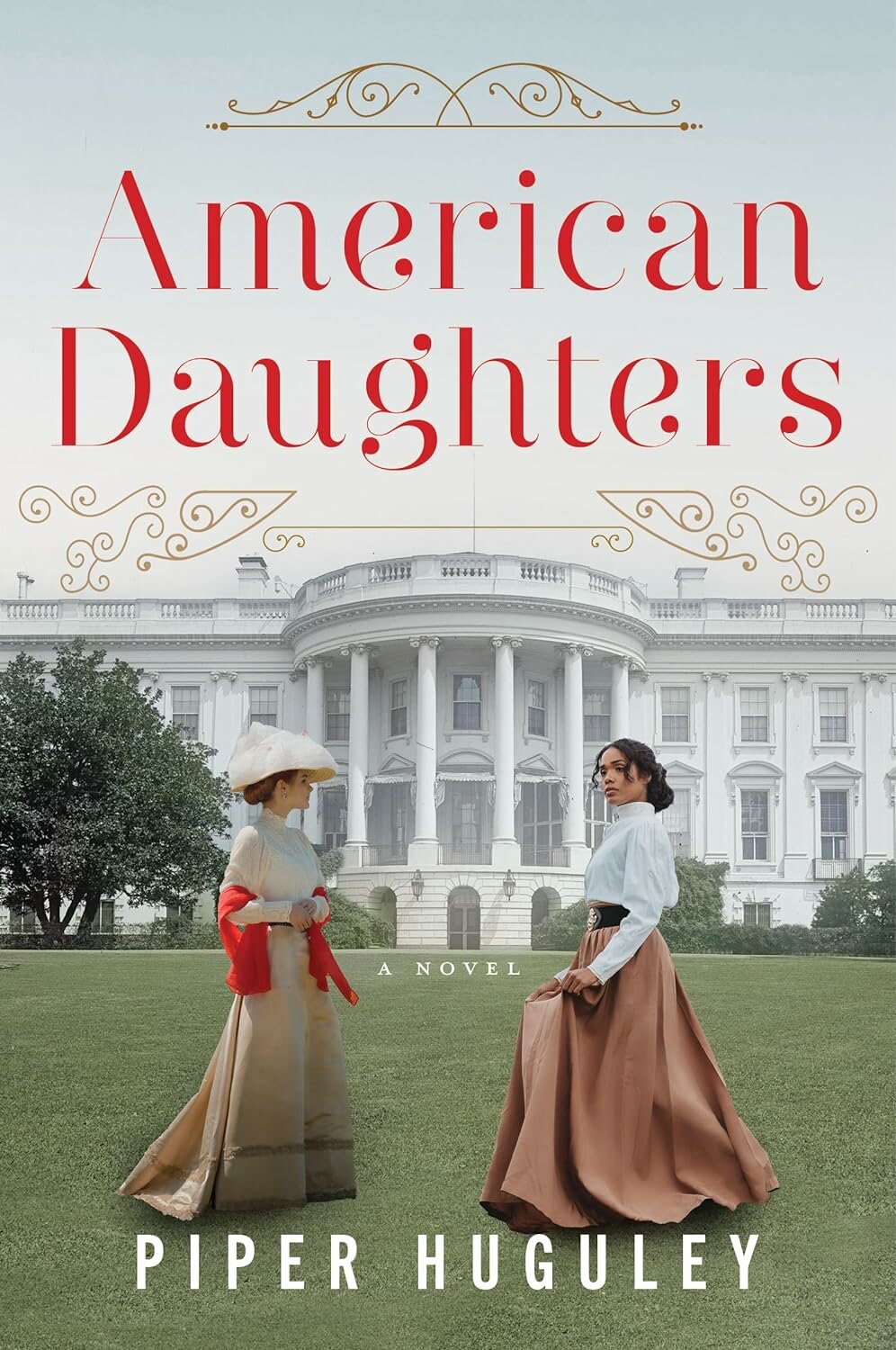Despire barriers, two daughters formed a lifelong friendship
“American Daughters” is the story of the friendship between Alice Roosevelt, daughter of Presidebnt Teddy Roosevelt, and Portia Washington, daughter of black leader Booker T. Washington, …
This item is available in full to subscribers.
Please log in to continue |
Register to post eventsIf you'd like to post an event to our calendar, you can create a free account by clicking here. Note that free accounts do not have access to our subscriber-only content. |
Day pass subscribers
Are you a day pass subscriber who needs to log in? Click here to continue.
Despire barriers, two daughters formed a lifelong friendship
“American Daughters” is the story of the friendship between Alice Roosevelt, daughter of Presidebnt Teddy Roosevelt, and Portia Washington, daughter of black leader Booker T. Washington, who founded the Tuskegee Institute to educate and train people of color for better employment.
Roosevelt’s hosting the Washingtons at the White House was considered most unconventional at a time – the 1930s – with racial segregation prevalent. Upon meeting and getting to know each other, the girls felt an immediate kinship, since both had lost their mothers early – Alice’s while giving birth to her, and Portia’s in early childhood. Both were being raised by stepmothers, of whom neither was overly fond.
When Alice’s mother died, her father was so grief-stricken that he left the newborn in the care of her Aunt Bye, as he sought solace and escape on the Western frontier. He was doubly bereft, since his beloved mother’s passing occurred on the same day as that of his young wife. It didn’t help that the baby was named after her mother, Alice. TR eventually remarried and had more children, but Alice always felt apart from the rest of the brood.
While the President’s daughter had a penchant for irreverence, bluntness, and feistiness, Portia was staid and respectful, feeling the necessity of being a worthy representative of her race. Dubbed “Princess Alice,” the former would climb onto the White House roof to smoke because her father had forbidden her to smoke in the house. In addition, she was known for her shenanigans, as carrying her pet snake around to scare people.
Eventually she would marry Congressman Nick Longworth, while Portia went to Berlin to study classical music. Before leaving for Europe, the latter had delayed a marriage proposal from a black suitor, William Sidney Pittman, and in Germany received another from a white suitor, Karl Krause, the son of her music tutor.
She and Alice had spoken about the probability of marriage in their future; and when Portia confided that Pittman had discouraged her further education in Berlin to study with the masters, Alice, in true form, responded that he was a typical male in his desire keep his wife ignorant and under his control.
After marriage to Portia, Pittman, a renowned Black architect, was an abusive and controlling husband. When friend Alice realized that Portia was struggling financially as Pittman’s commissions were slow in coming, she began sending lush baskets of food to her dear friend. Not only did Pitman take this “charity” as an offense, he was also resentful of the attention Portia devoted to their infant son.
After marriage, Alice had her own problems, primarily an interfering mother-in-law, a lack of success in conceiving, and a husband who was often away and known as a philanderer. When she discovered his infidelity with her best friend, her love and respect for him were diminished, and later she would take a lover of her own. Moreover, her husband was supporting President Taft for re-election against her father, who was running once again.
At the same time, Portia had given birth to three children in four years and felt overwhelmed. She yearned to return to her musical career as a pianist; but, despite many opportunities to perform, her husband frowned upon it.
As for Alice, in an act of defiance, as well as to support the cause, she joined the Women’s Suffrage March for female rights in 1920. The author employs this event to bring Portia and Alice together at the conclusion of the book, but speculates that Portia may have been too occupied with raising three little children to participate.
This detail, as well as others, are speculations of the author, who confesses that in the novel she manipulated the timeline and took poetic license in some instances. In addition, since she could find no record of the location of Portia’s concerts in Germany, she chose to place them in Berlin at the Konzerthaus. So as with all fiction, including historical fiction, the reader must accept these assumptions, as well as the dialogue, as the workings of the author’s creativity and imagination in constructing an interesting narrative.
Despite this, the book presents two contemporary females, daughters of highly-respected leaders, who were brought together by their fathers’ friendship and throughout their lives – including marriages, political upheaval, and life’s challenges and disappointments, intimately understood and supported each other despite the racial barriers of their time.
Donna Bruno is a prizewinning author and poet recently recognized with four awards by National League of American Pen Women.






